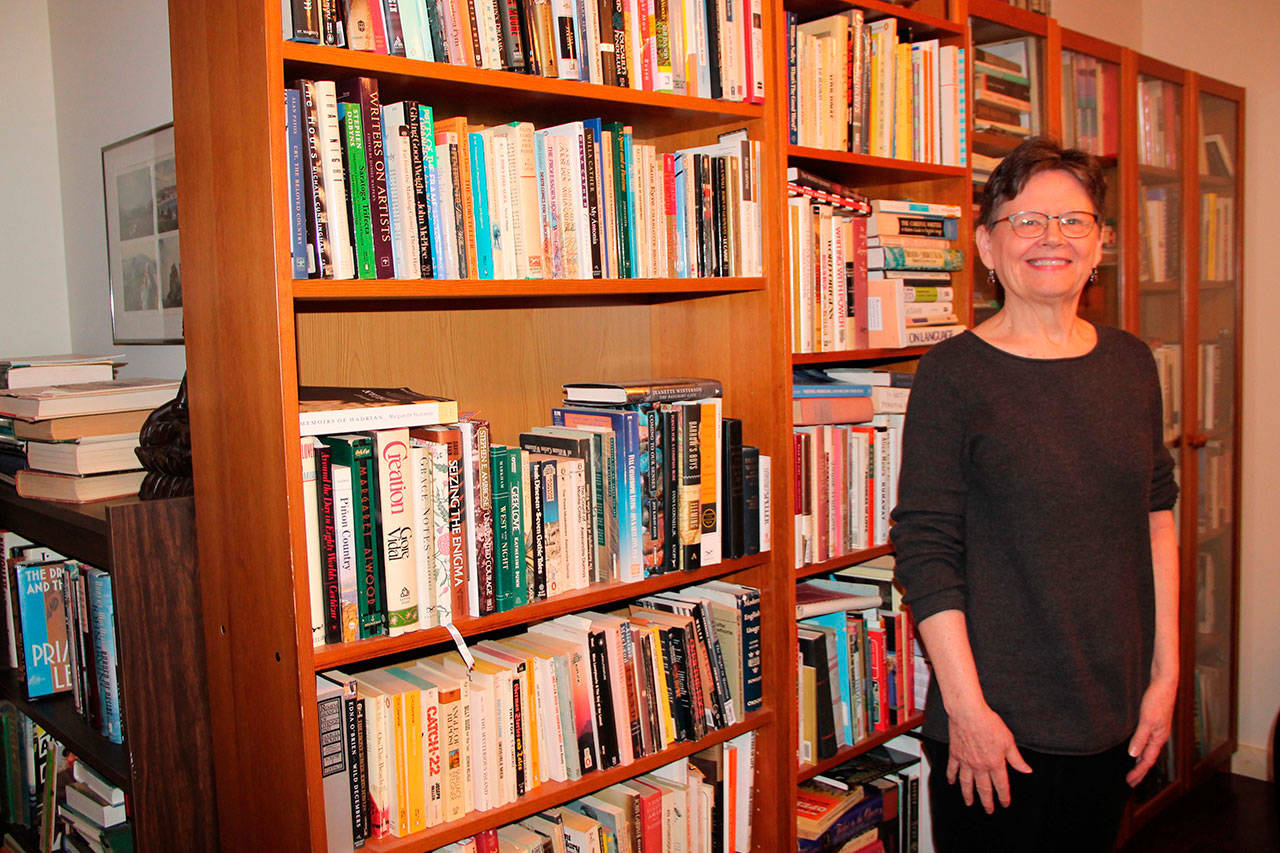When Microsoft’s first technical writer left the software giant in 1983, creative writing was a dream lodged somewhere in the back office of her mind. Imagining characters and their complicated lives seemed a far cry from writing explanations of software, but island author Andrea Lewis made the leap from technological talk to compassionate and witty lyrical prose.
Over the last 25 years, while also co-founding Richard Hugo House — Seattle’s center for literary arts — Lewis’ fiction has won numerous awards. Blue Light Books Prize is her most recent, which led to the publication of “What My Last Man Did,” a collection of interweaving short stories. Lewis will read from her new book Thursday, April 27, at Vashon Bookshop.
Ask Lewis why she writes, and she’ll tell you it’s her way of exploring contradictions. Her characters — flawed and funny, exotic and erotic, failing and formidable — do the heavy lifting of her investigation into the mishmash of life’s maddening opposites.
Juliette Devereaux, a 6-foot-tall stunning beauty is forbidden to sit in the main floor of New Orleans’ French Opera House, in 1895, because of her status as an “octoroon.” Her elegance pierces the heart of Rainier von Schofeld, the opera’s 5-foot-tall Austrian-born maestro. The two could not be more different, but their eventual union begets the book’s central character, Louis Paradiso, who then shows up in the intertwining stories about Hannah and Iris Delgado, a pair of sisters from Galveston, Texas. Lewis traces the incongruities that permeate and shape the lives of her characters backwards through time, to choices made by their predecessors.
“As soon as I start writing about any character, I think, ‘Why is the character like this?’ and that makes me think of their parents and grandparents,” Lewis said. “I can’t help but go back through people’s families. That’s how this book came together. For Louis Paradiso, before I thought of his mother, I thought of his grandmother, Juliette. I wanted him to have a colorful background.”
Thinking of a character, however, is a bit of a misnomer for Lewis. Most often, her characters materialize during timed writing, a classic tool fiction writers use to jump start the imagination and bypass the mental critic. The two Delgado sisters emerged that way, as did Juliette. For Lewis, those unexpected appearances are one of writing’s treasured dividends.
“When someone comes out of left field or your subconscious, that is the greatest moment in writing to me,” she said. “I’ve been with the same Seattle writing group for 25 years, and we often write to the timer. I start to write, and there will be a teenage boy, no preconceived idea, but he’s walking to school, and he sees up ahead that Darla is waiting for him. Who is Darla? Her hair is tangled up as it usually is, and she probably had been drinking the night before — this stuff is just coming out, and it is the coolest. That’s when the writing gods are smiling.”
But that’s not to say Lewis foregoes the research. She spends hours making lists — like the plants that inhabit her locations — collecting and sorting particulars for any given time or place. Her settings are evocative, filled with incisive details and sensual descriptions, but rarely does she leave her office for first-hand scouting. In an interview with “Indiana Review,” Lewis admitted she’s “never been to Galveston and barely seen New Orleans (and never in 1895!), so all of that was book- and internet-research. I prefer that to visiting a place, which can leave me ‘tyrannized by reality.’”
As for literary form, the short story most appeals to Lewis. But to read “What My Last Man Did” is to delve into the longer, connected lives of her vivid characters through graceful, fluid prose that reveals, through the writing process, a larger truth.
“For me, a story gets going when I ‘hear’ characters,” Lewis writes on her website, “and right away those characters start contradicting themselves, or wanting what’s bad for them, or hurting someone they love. Why does our head often contradict our heart? I’ll never know, but I like using fiction to try to figure it out.”


